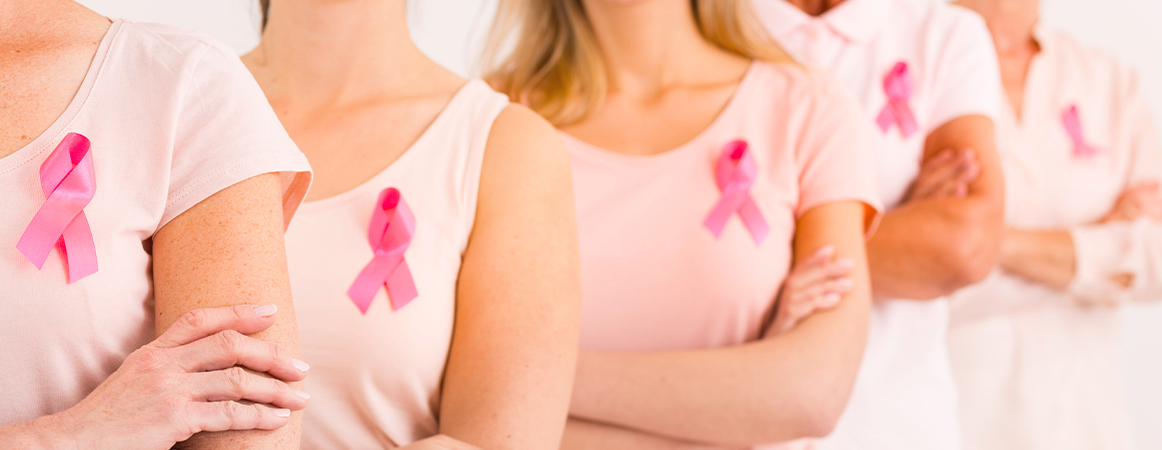Women Care: Breast Cancer Awareness in Pakistani Females 2022
Breast cancer can occur at any age, with a higher incidence in women 40 years and older. It is a global issue and is prevalent in all cultures, but its occurrence is more common in South Asian countries, majorly due to a lack of breast cancer awareness in women. Worldwide, there are about 1 million cases per year, with 60% of those cases coming from low- and middle-income countries, including Pakistan.
One of the main reasons is that many women in Pakistan are diagnosed at later stages due to a lack of breast cancer awareness. There’s also the issue of early detection; women are often too shy to visit health facilities earlier because of female sensitivity and social stigmas.
In Pakistan, women tend to approach healthcare facilities usually at the later stage of cancer due to a multitude of factors. Such as unemployment, people do not have the funds for treatment. Additionally, many women fear surgery and believe traditional treatments will heal them. Moreover, there is a lack of breast cancer awareness in Pakistani females, such as how breast cancer starts and progresses.
Risk Factors of Breast Cancer
There are several risk factors or causes of breast cancer, but not all of them lead to developing the disease. Many women who develop breast cancer have no known risk factors.
Factors associated with an increased risk of breast cancer include:
- Being female
- Increasing age
- A personal history of breast conditions
- A family history of breast cancer
- Radiation exposure
- Obesity
- The beginning period at a younger age
- Beginning menopause at an older age
- Having your first child at an older age
- Having never been pregnant
- Postmenopausal hormone therapy
- Drinking alcohol
Symptoms of Breast Cancer in Females
Different people have different breast cancer symptoms. Some people show no symptoms at all.
Some warning signs of breast cancer are:
- A new lump in the breast or underarm
- Any change in the size or shape or appearance of the breast
- Thickening or swelling of a breast area
- Pain in any area of the breast
- Nipple discharge other than breast milk (including blood)
- Irritation or dimpling of breast skin
- Redness or flaky skin in the nipple area (areola) or the breast
- Pulling in of the nipple or pain in the nipple area
If you experience any signs that worry you, see a specialist right away.
Breast Cancer Screening
There are different screening methods for early detection of breast cancer-related changes, including
- Mammogram
- Breast Magnetic Resonance Imaging (MRI)
- Breast self-examination
- Breast clinical examination (performed by a trained health care professional)
Women should have regular mammograms to detect breast cancer early when it is most treatable. The American Cancer Society recommends that women schedule their first screening at age 40.
Talk to your doctor to get more information about the right tests for you and whether you should begin earlier or later than 40.
How to Prevent Breast Cancer
While there is no guaranteed way to prevent breast cancer, there are certain things you can do to reduce your risk. Making some changes to your daily routine can help reduce your risk of breast cancer.
Try to:
- Become familiar with your breasts through breast self-exam for breast awareness: If there is a new change, lump, or other unusual signs in your breasts, talk to the doctor promptly.
- Stay Active: Aim for at least 30 minutes of exercise at least five days a week.
- Limit postmenopausal hormone therapy: Talk to your doctor about the benefits and risks of hormone therapy.
- Maintain a healthy weight: Lose some weight if you are obese. Reduce the number of calories and slowly increase the amount of exercise.
- Choose a healthy diet: Focus mostly on plant-based foods, such as fruits and vegetables, whole grains, legumes, and nuts. Choose healthy fats, such as fish instead of red meat, and olive oil, over butter.
- Breastfeed your children: Research shows mothers who breastfeed lower their risk of pre-and post-menopausal breast cancer.
Conclusion
Breast cancer prognosis is largely dependent on the stage of the disease. The smaller the tumor, the better the outcome. The treatment can be cheaper, and it’s easier to treat.
However, early detection of breast cancer is important because breast cancer symptoms are not always clear, and it may not even show up on a self-exam or clinical exam.
Women over the age of 40 are advised to get screening mammograms done every year. If you have a family history of breast cancer or other risk factors, your doctor may advise you to get them even sooner.
At Memon Medical Institute you can find the country’s best cancer doctor and the most effective treatment.


